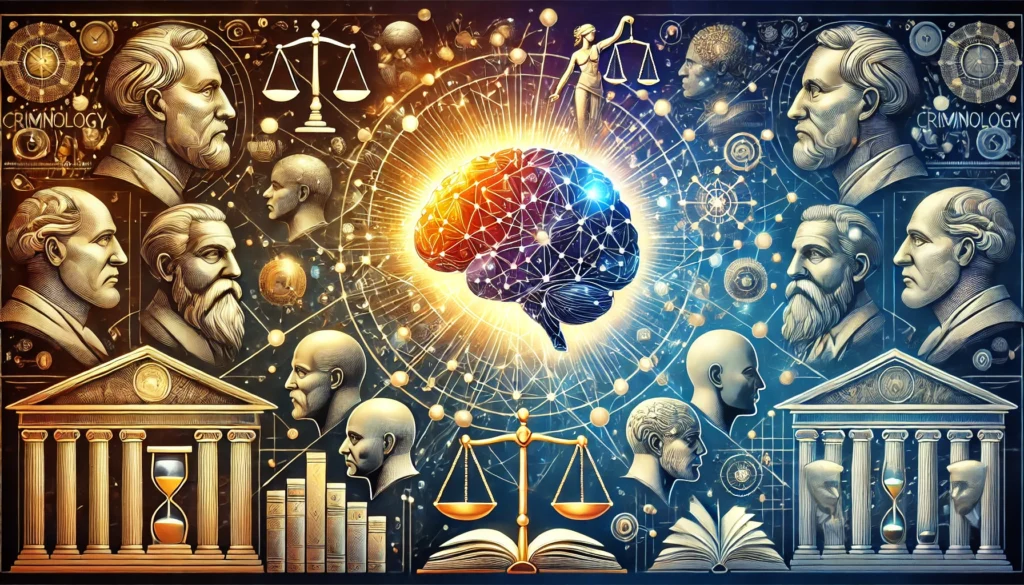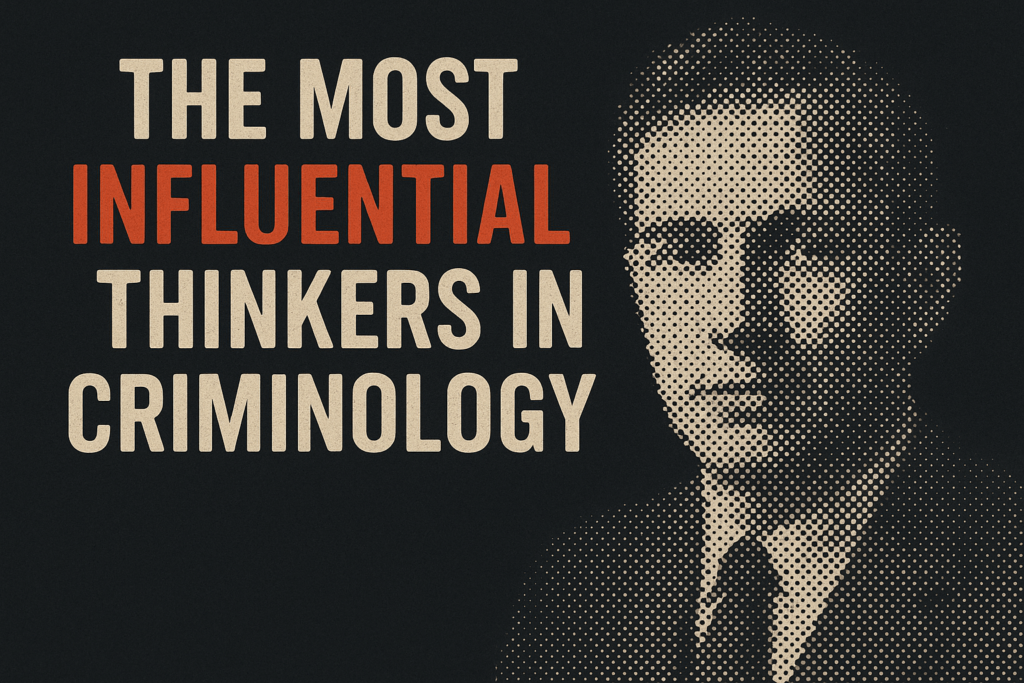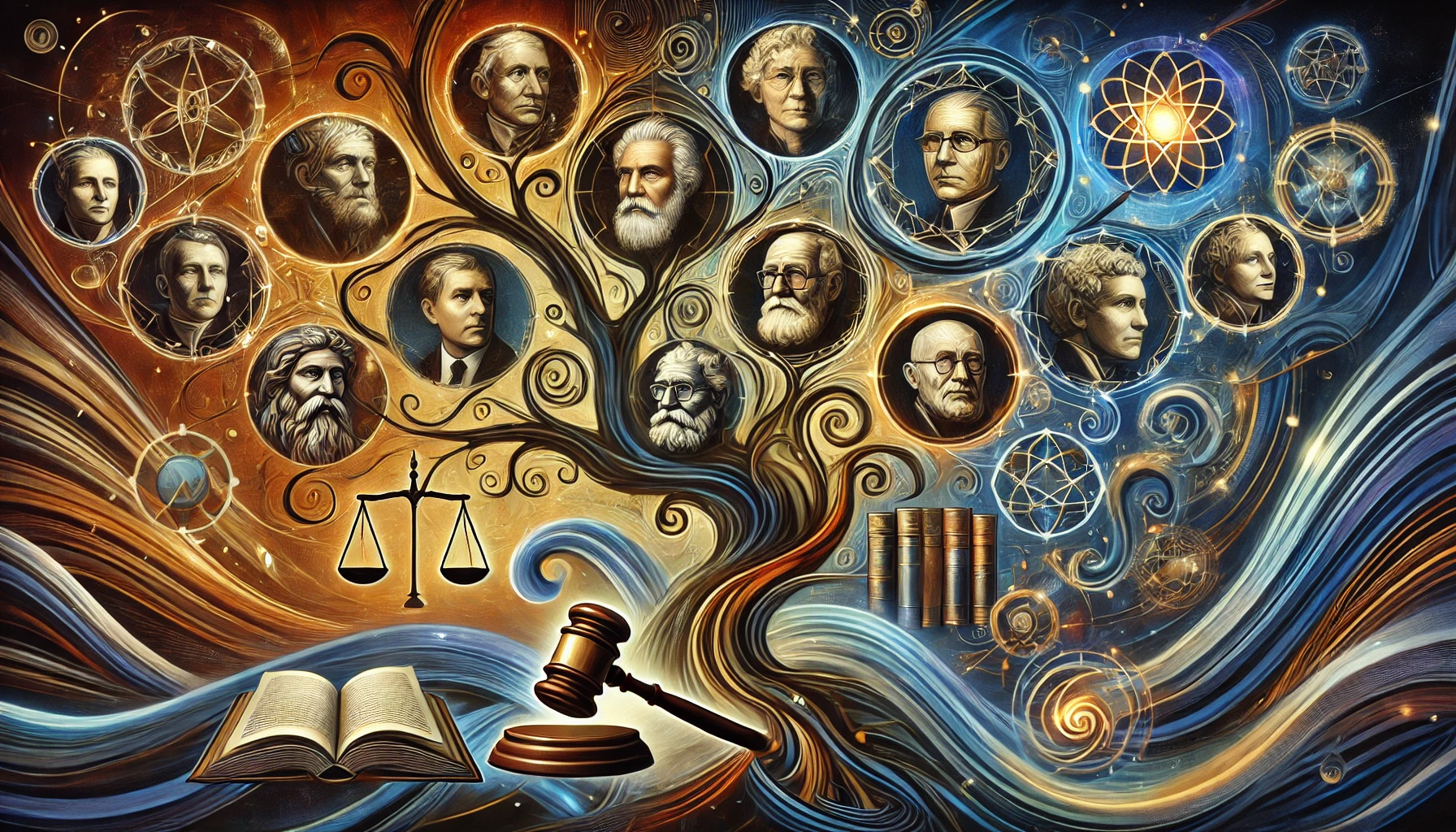Criminology has undergone significant development thanks to the contributions of prominent thinkers who established the theoretical and methodological foundations for studying crime. These contributions span centuries, from early philosophical analyses to modern scientific approaches. Classical thinkers like Cesare Beccaria and Cesare Lombroso left indelible marks on the evolution of this field, while later figures such as Enrico Ferri and Raffaele Garofalo expanded criminological analysis to include psychological and social dimensions.
This article explores the most influential thinkers in criminology and examines how their ideas have shaped modern studies, emphasizing how each contributed to the current understanding of crime and methods of combating it.
1. Cesare Beccaria: Pioneer of Modern Criminal Justice
A) His Life and Major Works
Cesare Beccaria (1738–1794) is one of the most prominent figures in the classical school of criminology.
- His seminal work, On Crimes and Punishments (1764), criticized the harsh and unjust punitive systems of his time and advocated for judicial reform.
B) Key Ideas
- The Principle of Deterrence: Punishments should be fair and swift, aiming primarily to prevent crime.
- Rationality and Free Will: Crime is committed based on a rational decision where individuals weigh risks and rewards.
- Rejection of Cruel Punishments: He called for the abolition of the death penalty and torture.
C) Impact on Modern Studies
- Beccaria’s ideas remain foundational to criminal justice systems worldwide.
- His principles influenced the development of human rights laws and elevated the standards of criminal justice.
2. Cesare Lombroso: The Father of Scientific Criminology
A) His Life and Theories
Cesare Lombroso (1835–1909), born in Italy, is a pioneer of the positivist school of criminology.
- He conducted extensive research on criminals from a biological perspective and introduced his famous theory of the “born criminal.”
B) Key Ideas
- Physical Traits of Criminals: Lombroso argued that criminals possess distinctive biological traits that set them apart from non-criminals.
- Heredity and Crime: He believed some individuals are inherently predisposed to criminal behavior.
- Environment and Crime: Later, Lombroso acknowledged the role of environmental factors in shaping criminal behavior.
C) Impact on Modern Studies
- Despite criticism of his biological theory, Lombroso’s work introduced the scientific method to the study of crime.
- His research inspired advancements in criminal psychology and forensic medicine.
3. Enrico Ferri: The Theory of Multiple Causes
A) His Life and Role in Criminology
Enrico Ferri (1856–1929), a notable disciple of Lombroso, expanded his mentor’s work with a more comprehensive approach to criminology.
B) Key Ideas
- Multiple Factors Influencing Crime: Ferri argued that crime results from the interplay of three types of factors:
- Biological Factors: Genetic traits.
- Psychological Factors: Personality and motivations.
- Social Factors: Environment and society.
- Prevention Over Punishment: He advocated for social policies aimed at addressing the root causes of crime.
C) Impact on Modern Studies
- Ferri’s ideas paved the way for multidisciplinary research combining sociology, psychology, and criminal justice.
- His theory of multiple causes influenced the design of crime prevention programs.

4. Raffaele Garofalo: The Concept of Natural Crime
A) His Life and Contributions
Raffaele Garofalo (1851–1934) was among the first to define crime from a moral and legal perspective.
B) Key Ideas
- Natural Crime: He defined crime as any act that violates universal moral principles essential to the continuity of society.
- Focus on Criminal Motives: He analyzed the motivations driving individuals to commit crimes.
C) Impact on Modern Studies
- Garofalo’s ideas fostered a more holistic understanding of crime, aiding in the analysis of crime from moral and social perspectives.
- His work influenced theories linking social values to criminal behavior.
5. Contemporary Thinkers: New Directions in Criminology
A) Edwin Sutherland and the Theory of Social Learning
- Sutherland introduced the concept of differential association, positing that crime is learned through interactions with individuals who hold criminal values.
- His theory highlighted the role of social environments in fostering criminal behavior.
B) Robert Merton and the Strain Theory
- Merton formulated the theory of strain, which explains how the discrepancy between cultural goals and available means drives individuals toward crime.
- His theory significantly impacted studies of crime in economically unequal societies.
C) Howard Becker and the Labeling Theory
- Becker introduced the concept of social labeling, emphasizing that individuals are classified as criminals based on societal reactions.
- His theory helped elucidate how social systems influence the development of a criminal identity.
Conclusion
Thinkers in criminology, both classical and contemporary, have greatly enriched our understanding of crime. From Cesare Beccaria, who laid the groundwork for modern criminal justice, to Lombroso, who introduced scientific methods, and Sutherland and Merton, who broadened the field to include social and psychological dimensions, these contributions have profoundly shaped the discipline.
Edwin Sutherland expanded the field by introducing the Theory of Social Learning, emphasizing the influence of social interactions on criminal behavior. Robert Merton further advanced criminology with the Strain Theory, highlighting the impact of societal pressures on individuals’ propensity to engage in criminal acts. Howard Becker’s Labeling Theory shed light on the effects of societal labels and stigmas on individuals, contributing to a deeper understanding of the social construction of crime.


